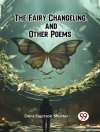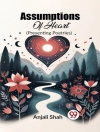The Burning Wheel (1916) is a collection of poems by English author Aldous Huxley. Published when the poet was only twenty-two, The Burning Wheel captures the mind of an artist at its earliest fertile stage, enthralled with a world either blooming with change or wilting with all-out war. Although Huxley is known foremost as a novelist, his poetry exhibits a mastery of language and an uncommon sense of the music inherent to words.
“The Burning Wheel” opens the collection with a kaleidoscopic vision of life and creation, illuminating the poet’s debt to the French Symbolists. “Weary of its own turning, ” the burning wheel slows for a moment’s rest. This wheel, both machine and pure, wild flame, is the poet compelled to create, the mind that “[w]akes from the sleep of its quiet brightness / And burns with a darkening passion and pain.” In “Quotidian Vision, ” Huxley returns to earth to remark: “There is a sadness in the street / And sullenly the folk I meet / Droop their heads as they walk along.” In these simple, rhyming couplets, the poet channels the verse and vision of William Blake to see, despite the “mist of cold and muffling grey, ” a “dead world move for him once more / With beauty for its living core.” The Burning Wheel is a compelling collection from an artist whose poetry is no less remarkable for having gone mostly unnoticed.
This edition of Aldous Huxley’s The Burning Wheel is a classic of English literature reimagined for modern readers.
Since our inception in 2020, Mint Editions has kept sustainability and innovation at the forefront of our mission. Each and every Mint Edition title gets a fresh, professionally typeset manuscript and a dazzling new cover, all while maintaining the integrity of the original book.
With thousands of titles in our collection, we aim to spotlight diverse public domain works to help them find modern audiences. Mint Editions celebrates a breadth of literary works, curated from both canonical and overlooked classics from writers around the globe.
Sobre o autor
Aldous Huxley (1894-1963) was an English writer and philosopher. Born in Godalming, Huxley—the grandson of famed zoologist Thomas Henry Huxley and grandnephew of poet and critic Matthew Arnold—was raised in a family with wide-ranging intellectual interests. He attended Eton College as a youth before enrolling at Balliol College, Oxford, where he studied English literature and edited Oxford Poetry. An eye disease Huxley contracted around this time ended his hopes of studying medicine and serving in the Great War, and he instead graduated with a BA in 1916. After a brief stint teaching French at Eton College—among his pupils was Eric Blair, later to write under the pen-name George Orwell—and several years working for Brynner and Mond, a chemical company, Orwell began writing in earnest. The first decade of his career saw him publish four novels, including Crome Yellow (1921) and Point Counter Point (1928). These early works of social satire, inspired in part by his acquaintance with members of the Bloomsbury Group, including Bertrand Russell and Alfred North Whitehead, as well as by his friendship with D.H. Lawrence, gave way in the 1930s to more serious works of fiction, including the dystopian classic Brave New World (1932) and Eyeless in Gaza (1936), a novel with pacifist themes. In 1937, Huxley moved with his wife, Maria, and son, Matthew, to Los Angeles, where he would live, apart from a period in Taos, New Mexico, for the rest of his life. Over the next three decades, Huxley continued to publish award-winning works of fiction, devoted himself to Vedantism, and wrote works on mysticism, Eastern and Western philosophies, and the use of psychedelic drugs.











